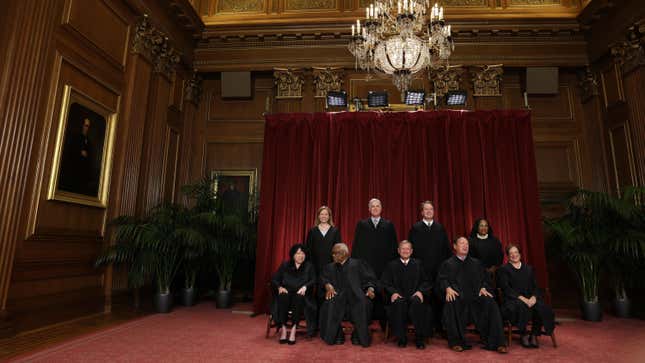Supreme Court Shocks Everyone With 5-4 Ruling in Favor of Voting Rights
John Roberts and Brett Kavanaugh joined the three Democratic-appointed justices to rule that Congressional maps in Alabama were racially gerrymandered.
JusticePolitics

In a Thursday ruling that virtually no one saw coming, the Supreme Court has decided not to take another sledgehammer to voting rights.
Chief Justice John Roberts and Justice Brett Kavanaugh joined the three Democratic-appointed Justices in a 5-4 ruling to say that Congressional maps in Alabama were racially gerrymandered and diluted the votes of Black residents. (That means Justices Clarence Thomas, Samuel Alito, Neil Gorsuch, and Amy Coney Barrett all dissented—the four horsemen of the apocalypse.)
-

-

-

-

-

-

-

-

-

-

-

-

-

-

-

-

-

-

-

-

-

-

-

-

-

-

-

-

-

-

-

-

-

-

-

-

-

-

-

-








































